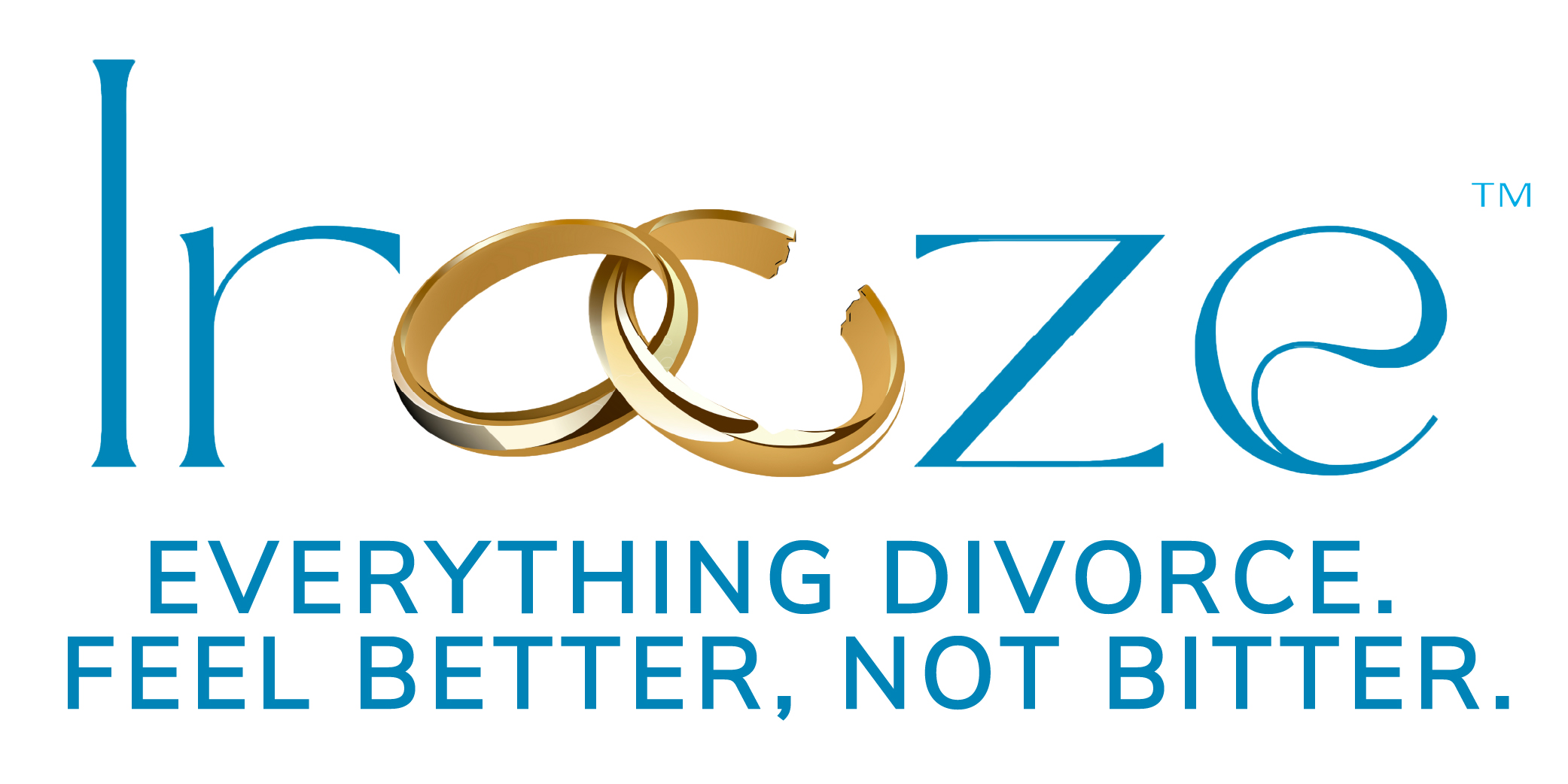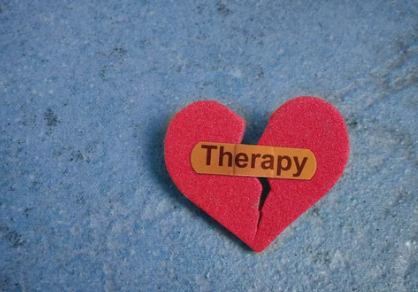A marriage is based upon trust- trust in all things, trust to receive support, trust in intimacy and vulnerability. Your spouse is the one that you are supposed to know the most intimately, and vice versa. The pain of discovering infidelity in a relationship can be like no other. It has been likened to its own form of post-trauma due to the lingering emotional effects that can follow you for a long time afterward, especially if you are not mindful and take the time to work on healing from it.
Many people ask, “Can I heal from the pain of being cheated on?” The answer to this, as unlikely as you may think, is actually yes. The doing of it is much simpler than the answer implies, but the first thing that is important to remember is that as human being, we are both vulnerable and resilient. Vulnerable to injury, but resilient in healing and the ability to move forward.
It is an earth-shattering and ground shaking experience to discover your spouse has been unfaithful. Finding healing, whether you choose to remain in the relationship or not, is a challenging road to walk that will require you to take mindful and intentional steps, to bestow yourself with grace and self-compassion, and to have the patience to allow the healing process to work. In this article we’ll address the depth of that pain, the importance of rebuilding your self-worth and trust, and tips to help you let go of the pain so you can move forward in your life unburdened and strong.
Why Infidelity Hurts: Understanding the Emotional Pain

There are many layers to the feeling of betrayal that will reverberate deeply in the aftermath, and with good reason. The pain of infidelity will cause you to question everything about your life, your marriage, all of your interactions with your partner, and your self-esteem.
You may find yourself reviewing and questioning in minute detail every interaction in your relationship, asking yourself how you didn’t see it, what you could have done differently, seeing the recent past with your spouse now in a new light, and facing the reality that maybe everything wasn’t as it seemed.
Everything you thought about your spouse and your relationship will feel shattered, the foundations of your trust are broken, and what that will inevitably lead to are feelings of inadequacy, abandonment, a complete destabilization of your core beliefs and questions of your self-worth. Those feelings will tap into deeper fears or past insecurities that we all harbor, this will feel like a direct stab right into the most vulnerable and tender areas that we all strive to protect at all costs.
Grieving the Loss of Trust and the Relationship You Thought You Had
Before you can begin to heal and rebuild yourself from this, you must allow yourself time to grieve. The five stages of grief (denial, anger, bargaining, depression and acceptance), which we generally apply to when dealing with death, are also part of the healing journey after infidelity, and you may already be making your way through it. In essence, that is what has happened here too, you are grieving the death of the relationship, and need to come to a place of acceptance about it.
It’s crucial to allow yourself the time to grieve the relationship that you thought you had. (None of this means you need to make a decision at this point about whether or not you will continue the relationship. In fact, it’s best not to make any decisions at this point, and give yourself the time to regain your footing and be able to think about that choice with clarity. Taking space away from your partner is a good idea, so that you can tap into what you are feeling and process what you want for yourself moving forward.)
Understanding Emotional Triggers and What Counts as Infidelity
While you are grieving, there may be emotional triggers that will set off intense emotional responses, feeling rage or intense sadness, bursting into tears or wanting to isolate yourself. You may feel panicked as feelings of abandonment surface or simply deep pain at reminders of the past, when you thought things were good. You’re absolutely allowed to have those moments. Give yourself grace, allow those feelings to come and observe what those triggers are. Being mindful of what is provoking those emotional responses will give you guidance to where your wounds are so you can address them when you are ready.
What is considered infidelity can vary greatly between individuals and relationships, and this subjective nature can add to the emotional turmoil. Understanding that infidelity encompasses a range of behaviors, from emotional connections to digital interactions, is essential. Couples need to mutually define their boundaries regarding infidelity to navigate these complex emotions effectively.
What Counts as Infidelity in a Marriage?
Infidelity is a complex and multifaceted concept that can be defined in various ways. At its core, infidelity refers to the act of engaging in emotional or sexual intimacy with someone outside of a committed relationship, such as a marriage or partnership. This can include physical acts, emotional connections, or online interactions that violate the boundaries and expectations of the primary relationship.
Forms of Cheating: Emotional, Physical, and Online
- Emotional Infidelity: Sharing intimate thoughts, feelings, or connections with someone outside of the relationship. This type of infidelity can create a deep emotional attachment that undermines the trust and intimacy in the primary relationship.
- Sexual Infidelity: Engaging in physical or sexual acts with someone outside of the relationship. This form of infidelity often causes intense emotional pain and can severely damage the trust and connection between partners.
- Online Infidelity: Engaging in online interactions, such as sexting or cyber sex, with someone outside of the relationship. In the digital age, online infidelity has become increasingly common and can be just as damaging as physical or emotional infidelity.
It’s essential to note that what constitutes infidelity can vary from person to person and relationship to relationship. Couples should have open and honest discussions about their boundaries, expectations, and definitions of infidelity to ensure a clear understanding of what is and isn’t acceptable. By establishing mutual agreements, partners can create a foundation of trust and respect that supports the health and longevity of their relationship.
Top Reasons for Infidelity in a Relationship
Infidelity is often the result of a complex interplay of factors, and understanding these can be crucial in addressing and preventing it. Some common causes include:
- Relationship Dissatisfaction: Feeling unhappy, unfulfilled, or disconnected from one’s partner can lead individuals to seek emotional or sexual intimacy elsewhere. When the primary relationship lacks satisfaction, the allure of extramarital affairs can become more tempting.
- Lack of Communication: Poor communication, misunderstandings, or unmet emotional needs can create a rift between partners. Without open and honest dialogue, unresolved issues can fester, leading to emotional and sexual infidelity.
- Low Self-Esteem: Feeling insecure, inadequate, or unappreciated can drive individuals to seek validation and affirmation outside of their primary relationship. This quest for self-worth can manifest in emotional or sexual relations with others.
- Opportunity: Being in situations or environments that increase the likelihood of meeting someone new can also be a significant factor. Whether through work, social events, or online platforms, opportunities for infidelity can arise unexpectedly.
- Personal Issues: Struggling with addiction, mental health concerns, or past traumas can contribute to infidelity. These personal challenges can impact one’s ability to maintain a healthy and committed relationship.
It’s essential to recognize that infidelity is often a symptom of deeper issues within the relationship or individual. Addressing these underlying concerns is crucial to preventing infidelity and promoting a healthy, fulfilling relationship. By fostering open communication, mutual support, and understanding, couples can work together to strengthen their bond and reduce the risk of infidelity.
Key Risk Factors That Lead to Cheating in Relationships
Certain risk factors can increase the likelihood of infidelity, and being aware of these can help couples take proactive steps to protect their relationship. Some common risk factors include:
- Poor Communication: Lack of open, honest, and respectful communication can create misunderstandings and emotional distance. When partners struggle to express their needs and feelings, it can lead to emotional and sexual infidelity.
- Unrealistic Expectations: Having unattainable or unrealistic expectations of one’s partner or relationship can set the stage for disappointment and dissatisfaction. When expectations are not met, individuals may seek fulfillment outside the relationship.
- Lack of Intimacy: Feeling disconnected or unfulfilled in the relationship can drive individuals to seek intimacy elsewhere. Whether emotional or physical, a lack of intimacy can weaken the bond between partners.
- Opportunity: Being in situations or environments that increase the likelihood of meeting someone new can be a significant risk factor. Social events, work environments, and online platforms can all present opportunities for infidelity.
- Personal Issues: Struggling with addiction, mental health concerns, or past traumas can impact one’s ability to maintain a committed relationship. These personal challenges can increase the risk of infidelity.
Ways to Reduce the Risk of Cheating in Marriage
- Practicing Open and Honest Communication: Regularly discussing feelings, needs, and concerns can help partners stay connected and address issues before they escalate.
- Setting Realistic Expectations and Boundaries: Establishing clear and attainable expectations can help prevent disappointment and dissatisfaction.
- Prioritizing Intimacy and Connection: Making time for emotional and physical intimacy can strengthen the bond between partners and reduce the risk of infidelity.
- Avoiding Risky Situations: Being mindful of environments and situations that may increase the likelihood of infidelity can help protect the relationship.
- Seeking Help and Support for Personal Issues: Addressing personal challenges through therapy or support groups can improve one’s ability to maintain a healthy and committed relationship.
By taking these proactive steps, couples can work together to create a strong and resilient relationship that is less vulnerable to the risk of infidelity.
Emotional & Long-Term Effects of Infidelity
Infidelity can have a profound impact on individuals and relationships, leaving deep emotional scars and challenging the foundation of trust. Some of the most common effects include:
- Emotional Pain: Feelings of hurt, betrayal, and anger are often overwhelming. The discovery of infidelity can cause intense emotional pain, leading to a range of emotions from rage to deep sadness.
- Relationship Damage: The erosion of trust, intimacy, and connection can be devastating. Infidelity can shatter the sense of security and stability in a relationship, making it difficult to rebuild.
- Low Self-Esteem: Feelings of inadequacy, insecurity, and self-doubt can arise. Being betrayed by a partner can lead to questioning one’s worth and attractiveness, further complicating the healing process.
- Healing Process: Recovering from infidelity is a challenging and often lengthy process. It requires time, effort, and commitment from both partners to address the underlying issues and work towards rebuilding trust and connection.
How Infidelity Can Affect Your Future Relationships
- Divorce or Separation: Many relationships do not survive the breach of trust caused by infidelity, leading to separation or divorce.
- Emotional Scarring: The emotional wounds from infidelity can linger, affecting future relationships and one’s ability to trust others.
- Difficulty Trusting Others: The betrayal can make it challenging to trust future partners, impacting relationship satisfaction and stability.
- Increased Anxiety and Stress: The emotional turmoil caused by infidelity can lead to heightened anxiety and stress, affecting overall well-being.
It’s essential to recognize that infidelity is a serious issue that requires attention, effort, and commitment to overcome. Couples can work together to heal and rebuild their relationship, but it’s crucial to address the underlying issues and work towards creating a stronger, more resilient connection. Seeking support from marital and family therapy or a Divorce Coach can be invaluable in navigating the healing process and rebuilding trust. By focusing on open communication, mutual support, and understanding, couples can find a path forward and create a healthier, more fulfilling relationship.
Healing from Cheating: Steps to Regain Confidence and Self-Trust

As you move through the grieving process, how do you begin to re-build your self-worth, your self-respect and your trust in yourself?
First, it’s crucial for you to refocus your lens and see yourself as an individual. Reclaiming who you are outside the roles of your relationship, rediscover who you are by pursuing or exploring activities that will enrich your life, promote your independence and bolster your confidence. Think about things you enjoy doing, be it hiking, team sports, art classes—whatever YOU enjoy doing, do it.
Second, taking time for self-reflection, identify your core values. If you’re the type who enjoys journaling, write it down, or use a speech to text app to record your thoughts. Being clear on your core values helps you make decisions that align with your needs and priorities. With that clarity, your self-awareness will grow, and support you in identifying or establishing strong boundaries. As all of these qualities are illuminated and embraced, your resilience will strengthen and create a strong foundation for you to rely on and your self-respect will direct you to the choices and decisions that will be right for you moving forward.
Rebuilding Trust in Yourself After Betrayal
Third is to restore your trust in yourself. One of greatest impacts of infidelity is that it causes the other spouse to lose all trust in themselves and in any future potential relationships. They question “how did I not see this?” or “what could I have done differently?” or “how can I ever trust anyone again?”. Self-forgiveness is an important element when it comes to self-trust. Remember that being vulnerable in a relationship is not a flaw or a weakness. Rather, it is a sign of strength and courage that you were open and willing to connect and commit to another person.
It is not a negative reflection on you that things did not work out as you hoped, and your partner did not behave as you expected. As such, you can turn that same strength and courage inward to bolster the trust you have in your decisions, your boundaries and enhancing your emotional resilience as a foundation for any future, healthy relationships. While infidelity is painful, it can also be an opportunity for growth and healing, potentially leading to a stronger relationship, as suggested by the concept of ‘infidelity mending your marriage’.
Deciding Whether to Divorce After Cheating: What to Consider

While you’re going through the grieving and healing process, the question of whether to stay in or to leave the relationship will loom greatly. Remember that you don’t have to make that decision from one day to the next. Actually, it may be wiser to give yourself some time to gain some clarity before you make a definite decision rather than making a rash move, especially if there are children involved.
This doesn’t mean that you can’t or shouldn’t take some space from your partner, for however long you need. It will be hard to regain your footing and be able to sort through your feelings and thoughts without taking that space. Seeking marital therapy can provide valuable support and guidance for couples deciding whether to stay together or separate. While you do that, here are some factors to consider to help you discern what will be the best choice for you moving forward:
Your Partner’s Sense of Remorse and Self-Responsibility:
First and foremost, has your spouse taken responsibility and expressed sincere remorse and regret for their actions? Or are they blaming you, finding excuses or refusing to be accountable for what they have done? Are they committed to change and addressing the underlying issues that led to their infidelity? Re-establishing trust in the relationship will be dependent on their willingness to own their behavior, take responsibility for how they have hurt you, and their determination to improve and commit to your relationship.
The Health and History of Your Relationship:
Reflect on the overall health and stability of your relationship until this point. Be honest with yourself. Was there generally mutual support and fulfillment, or were there chronic and recurring conflicts or unmet needs? Was this a one-time incident or has your spouse betrayed your trust previously? If there were already cracks in the relationship, or your spouse has repeatedly cheated on you, this would be an indication that the issues in the relationship may be beyond repair.
Ability to Forgive and Rebuild Trust:
More self-honesty here: Are you capable of forgiving your spouse and move forward in good faith, without holding on to resentments or using their betrayal as a weapon against them? Do you think you can genuinely heal from this? Are you both willing to commit the time and effort to rebuild trust in the relationship with honest communication, boundaries and compassion? It’s important to listen to your intuition here rather than pushing yourself to do what you think you “should” do.
Your Future Happiness and Your Emotional Well-Being:
Reflect on the relationship before the infidelity, reflect on the impact that your spouse’s actions have had on your emotional wellbeing. What do you feel will bring you the most positive outcome for you? Will you feel insecure and anxious in the relationship if you stay? Can you see a fulfilling future with your spouse if you stay, or will leaving the relationship be a healthier choice for you? Your emotional well-being is of primary importance when making this decision.
Support System and Resources:
Seeking out support from trusted individuals can be very helpful. Professional help in the form of couples counselling or even on an individual basis for you can help you navigate and heal from this difficult experience, provide you with tools and new perspectives for making the right decision for you, or to help you work together if you’ve decided to stay in the relationship. Reach out to reliable and supportive friends and family if you feel you can as well.
Practical Steps to Heal from Infidelity and Reclaim Your Life
Time and self-compassion are the key, but what are some other things you can do to help yourself release and heal from the pain of infidelity? Understanding the complexities of romantic relationships can help individuals navigate the healing process more effectively.
5 Practical Tips for Healing After Infidelity
1 Practice Forgiveness:
Forgiveness is a personal process that doesn’t necessarily require the apology of the other person. Deciding to forgive your spouse will be primarily of benefit to you, regardless of their expression of remorse. Forgiveness allows you to release the emotional burden of pain, resentment and anger, redirecting that energy toward yourself and allowing you to fill your cup with positive experiences and interactions.
2. Set Boundaries for Contact
(If You Choose to Separate): If there are no children involved, nor any other extenuating responsibilities that require regular contact between you, it’s advisable to set limits about boundaries around any further contact, or even to block all further contact, if needed. In the case that there are children and responsibilities, decide for yourself what your capacity for maintaining contact will be. Do you keep it to strictly text or email? Do you only communicate on certain days of the week? Setting boundaries will help you protect your journey of emotional healing.
3. Focus on Personal Growth:
Use this painful experience as an opportunity to learn more about yourself and what your needs, requirements and boundaries are. Every struggle and challenge can open the door to deeper healing and self-discovery. While it’s hurtful and devastating, remember that there is always a light in the darkness.
4. Seek Support from a Divorce Coach, Trusted Friends or a Therapist:
Whether you’re deciding to stay in or to leave the relationship, your support network will be invaluable to help you process the situation, understand the feelings coursing through you and gain new perspectives.
5 Visualize a Positive Future Beyond the Pain:
As a way to remain motivated in your healing journey (because there will always be an ebb and flow of good days and bad days), envision a positive and fulfilling future and keep returning to that vision when you feel discouraged. Setting your sights ahead to better days will help support your growing emotional resilience and commitment to making your way through this difficult time.
Healing from Infidelity: Your Journey Toward Peace and Wholeness
While the pain of infidelity can feel overwhelming and devastating, remember that it will not last forever. Your healing journey will take the time it needs, there is no timeline, and it’s important to acknowledge and celebrate every baby step you take forward. It takes formidable strength and courage to work on healing and to rebuild your life (whether together or apart) with self-respect, self-trust and compassion. It may not feel that way right now, but releasing the pain is possible with time and intentional actions. Remember, you, your emotional well-being and your fulfillment are worth every effort you can make.
If you’re struggling with the pain of an unfaithful partner, Irooze.com is here for you. You can find Divorce Coaches and certified counselors in areas such as Anger Management in our Divorce Directory to speak with for personal support. If you’re not sure where to start, take the free Self-Assessment Quiz for clarity on your priorities and to receive a free Strategy Call with a Divorce Coach. We will help you gain new insights and perspectives, and plan your next steps.
Disclaimer:
The information provided in this article is intended for general informational purposes only and is not a substitute for professional advice, diagnosis, or treatment. As a certified life coach, I aim to support and guide individuals in their personal growth and development. The content of this article should not be used as the sole basis for making decisions regarding your well-being. Always consult with a qualified professional before making any significant changes to your life or treatment plan.





